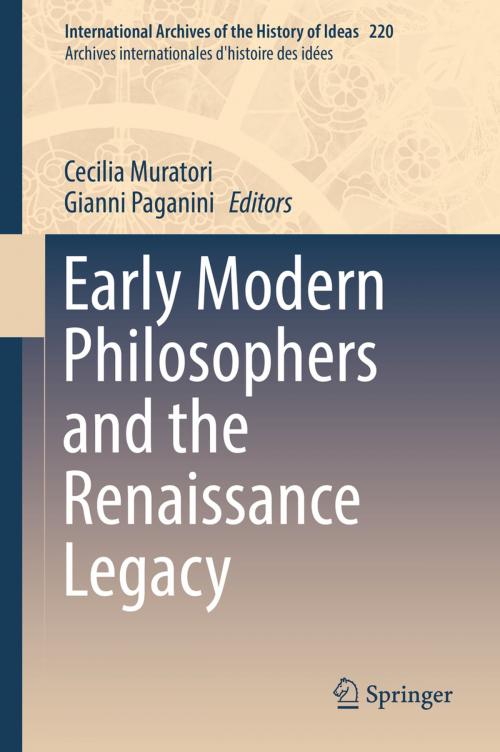Early Modern Philosophers and the Renaissance Legacy
Nonfiction, Religion & Spirituality, Philosophy, History, Criticism, & Surveys, Science & Nature, Science, Other Sciences| Author: | ISBN: | 9783319326047 | |
| Publisher: | Springer International Publishing | Publication: | September 27, 2016 |
| Imprint: | Springer | Language: | English |
| Author: | |
| ISBN: | 9783319326047 |
| Publisher: | Springer International Publishing |
| Publication: | September 27, 2016 |
| Imprint: | Springer |
| Language: | English |
When does Renaissance philosophy end, and Early Modern philosophy begin? Do Renaissance philosophers have something in common, which distinguishes them from Early Modern philosophers? And ultimately, what defines the modernity of the Early Modern period, and what role did the Renaissance play in shaping it? The answers to these questions are not just chronological. This book challenges traditional constructions of these periods, which partly reflect the prejudice that the Renaissance was a literary and artistic phenomenon, rather than a philosophical phase.
The essays in this book investigate how the legacy of Renaissance philosophers persisted in the following centuries through the direct encounters of subsequent generations with Renaissance philosophical texts. This volume treats Early Modern philosophers as joining their predecessors as ‘conversation partners’: the ‘conversations’ in this book feature, among others, Girolamo Cardano and Henry More, Thomas Hobbes and Lorenzo Valla, Bernardino Telesio and Francis Bacon, René Descartes and Tommaso Campanella, Giulio Cesare Vanini and the anonymous Theophrastus redivivus.
When does Renaissance philosophy end, and Early Modern philosophy begin? Do Renaissance philosophers have something in common, which distinguishes them from Early Modern philosophers? And ultimately, what defines the modernity of the Early Modern period, and what role did the Renaissance play in shaping it? The answers to these questions are not just chronological. This book challenges traditional constructions of these periods, which partly reflect the prejudice that the Renaissance was a literary and artistic phenomenon, rather than a philosophical phase.
The essays in this book investigate how the legacy of Renaissance philosophers persisted in the following centuries through the direct encounters of subsequent generations with Renaissance philosophical texts. This volume treats Early Modern philosophers as joining their predecessors as ‘conversation partners’: the ‘conversations’ in this book feature, among others, Girolamo Cardano and Henry More, Thomas Hobbes and Lorenzo Valla, Bernardino Telesio and Francis Bacon, René Descartes and Tommaso Campanella, Giulio Cesare Vanini and the anonymous Theophrastus redivivus.















